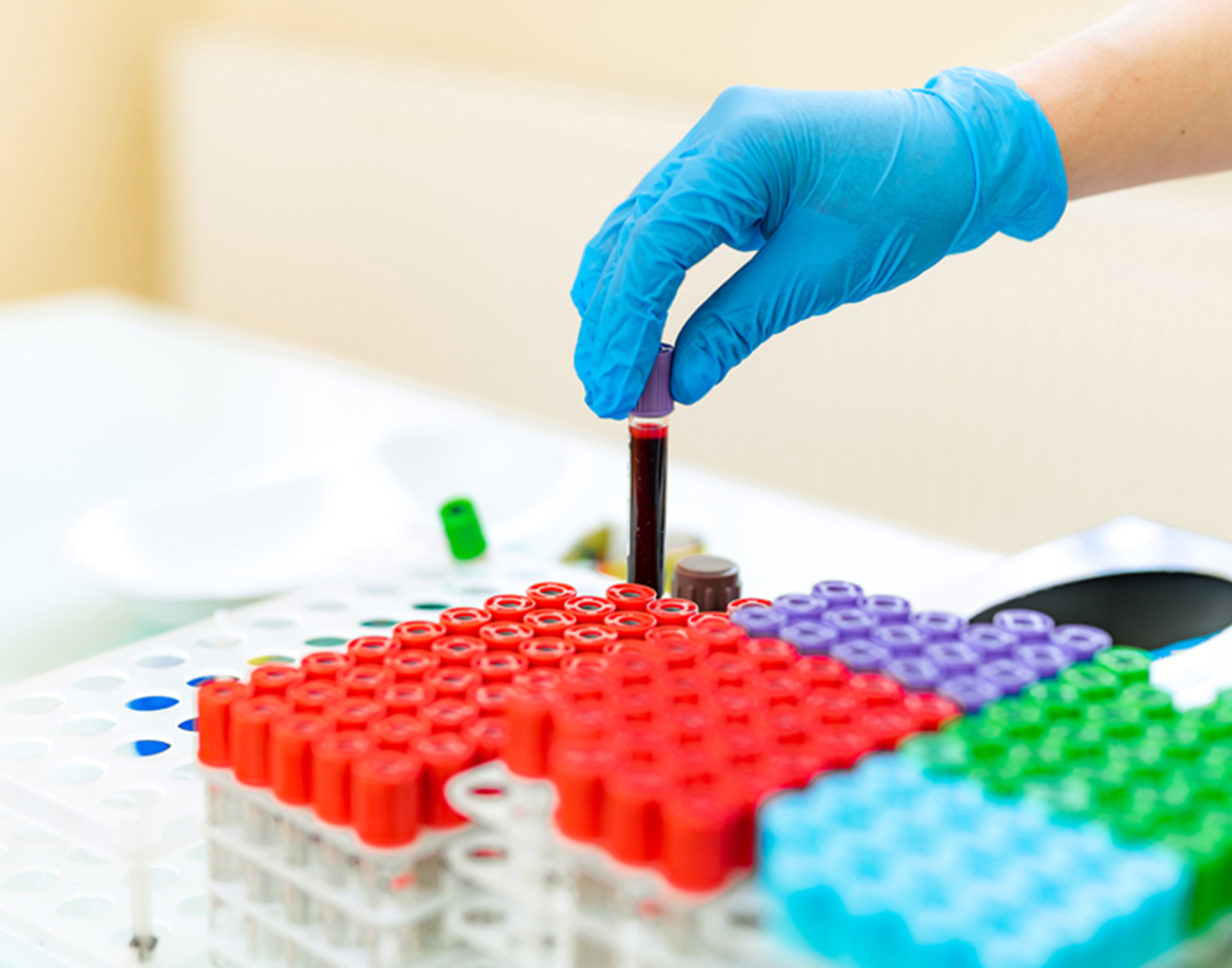
Cholinesterase - blood
Definition
Serum cholinesterase is a blood test that looks at levels of 2 substances that help the nervous system work properly. They are called acetylcholinesterase and pseudocholinesterase. Your nerves need these substances to send signals.
Acetylcholinesterase is found in nerve tissue and red blood cells. Pseudocholinesterase is found primarily in the liver.
Alternative Names
Acetylcholinesterase; RBC (or erythrocyte) cholinesterase; Pseudocholinesterase; Plasma cholinesterase; Butyrylcholinesterase; Serum cholinesterase
How the Test is Performed
A blood sample is needed. Most of the time blood is
How to Prepare for the Test
No special steps are needed to prepare for this test.
How the Test will Feel
You may feel slight pain or a sting when the needle is inserted. You may also feel some throbbing at the site after the blood is drawn.
Why the Test is Performed
Your health care provider may order this test if you may have been exposed to chemicals called organophosphates. These chemicals are used in pesticides. This test can help determine your risk of poisoning.
Less often, this test may be done:
- To diagnose
liver disease - Before you receive anesthesia with succinylcholine, which may be given before certain procedures or treatments, including electroconvulsive therapy (ECT)
Normal Results
Typically, normal pseudocholinesterase values range between 8 and 18 units per milliliter (U/mL) or 8 and 18 kilounits per liter (kU/L).
Note: Normal value ranges may vary slightly among different laboratories. Talk to your provider about the meaning of your specific test results. Levels can vary from person to person, so having a baseline level makes the test more accurate.
What Abnormal Results Mean
Decreased pseudocholinesterase levels may be due to:
- Hereditary deficiency of pseudocholinesterase
- Chronic infection
Chronic malnutrition- Heart attack
- Liver damage
Metastasis - Obstructive jaundice
- Poisoning from organophosphates (chemicals found in some pesticides)
- Inflammation that accompanies some diseases
Smaller decreases may be due to:
- Pregnancy
- Use of birth control pills
References
Hall JE, Hall ME. The autonomic nervous system and the adrenal medulla. In: Hall JE, Hall ME, eds. Guyton and Hall Textbook of Medical Physiology. 14th ed. Philadelphia, PA: Elsevier; 2021:chap 61.
Nelson LS. Acute poisoning. In: Goldman L, Schafer AI, eds. Goldman-Cecil Medicine. 26th ed. Philadelphia, PA: Elsevier; 2020:chap 102.
Ritter JM, Flower R, Henderson G, Loke YK, MacEwan D, Rang HP. Chemical mediators and the autonomic nervous system. In: Ritter JM, Flower R, Henderson G, Loke YK, MacEwan D, Rang HP, eds. Rang and Dale's Pharmacology. 9th ed. Philadelphia, PA: Elsevier; 2020:chap 13.
Review Date: 29/04/2023
The information provided herein should not be used during any medical emergency or for the diagnosis or treatment of any medical condition. A licensed physician should be consulted for diagnosis and treatment of any and all medical conditions. Call 911 for all medical emergencies. Links to other sites are provided for information only -- they do not constitute endorsements of those other sites. Copyright ©2019 A.D.A.M., Inc., as modified by University of California San Francisco. Any duplication or distribution of the information contained herein is strictly prohibited.
Information developed by A.D.A.M., Inc. regarding tests and test results may not directly correspond with information provided by UCSF Health. Please discuss with your doctor any questions or concerns you may have.



























